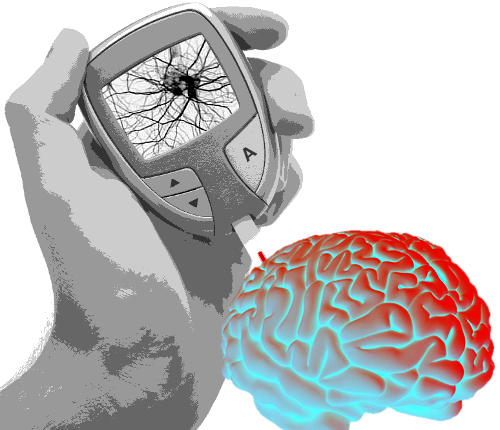Study ties Type 2 to brain bundles
 Australian researchers say they have spotted a strong link between diabetes and Alzheimer’s.
Australian researchers say they have spotted a strong link between diabetes and Alzheimer’s.
They say type 2 diabetes may be associated with brain changes that occur in Alzheimer’s disease.
“People with type 2 diabetes have approximately double the risk of developing dementia,” says Associate Professor Velandai Srikanth, Director of the Stroke at Ageing Research Group at Monash University.
Dr Srikanth is a lead author of the paper published in the journal Neurology.
The study conducted by Monash researchers brought in experts from Tasmania and Western Australia to look at the relationship between type 2 diabetes and the loss of brain cells and their connections.
The study found that people with diabetes had greater levels of a protein called tau in their spinal and brain fluid.
“Greater levels of tau in spinal fluid may reflect a build-up of “tangles” within nerve cells in the brain,” said geriatrician and study author Dr Chris Moran.
“The presence of such tangles may interfere with critical functions of the nerve cells, causing them to die.
“Significantly, this nerve cell loss leads to the memory and cognitive problems similar to those found in dementia due to Alzheimer’s disease. Such tangles are also found in the brains of people who have suffered from Alzheimer’s disease dementia.”
“We also found that diabetes is associated with cortical thinning, the layer of the brain with most nerve cells,” Dr Srikanth added.
The team now wants to know if one condition causes the other.
“Because our study looked at participants’ data at one point in time, it does not determine whether there is a cause-and-effect relationship between diabetes and the brain tangles, but follow-up study may help confirm this,” Dr Srikanth said.
“Nerve cells in the brain do not easily replace themselves, so it is extremely important to find ways to reduce the risk of death of current brain cells.
“With this discovery, we’re beginning to recognise that there are common mechanistic pathways that overlap with diabetes and Alzheimer’s disease,” said Dr Moran.
“A better understanding of these pathways may help design drug targets and provides more options for treatment or prevention of dementia.”








 Print
Print